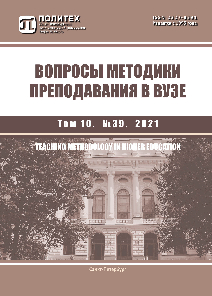Self-training as a means of written and oral translation skills mastering
The interest in the given topic was caused by the lack of university graduates' confidence in their readiness to start their professional career due to the transfer to a three-level educational system and the changes related to that. In our view, it is very timely to increase the quality of translators training in the current situation. This article is aimed at searching for ideas which could help to organize self-training of students or young translators, facilitate a quicker learning of material and translation skills mastering, as well as to enhance the teachers' and students' efficiency both in traditional and online learning. The specific feature of the given methods is the organization of self-training and peer training in a student group, which can solve the problem of academic hours reduction and increasing the proportion of selfstudies. Oral and written translation skills training exercises mentioned in the article are intended to help the students to solve the typical problems young translators usually face. Among the problems mentioned in the present article is non-observance of word combinability, non-observance of the text style and genre, hesitation pauses, interpretation slowdown, ambiguity of the original syntax, translation mutilation due to a speaker’s accent, difficulty to remember the statement, lagging behind in tempo, lack of skill to listen and speak at the same time during the simultaneous translation, unknown word «stumbling». The general principles and exercises suggested by the author can help to improve the Practical Course of Translation learning process and individualize the students learning as well as shape self-study skills



